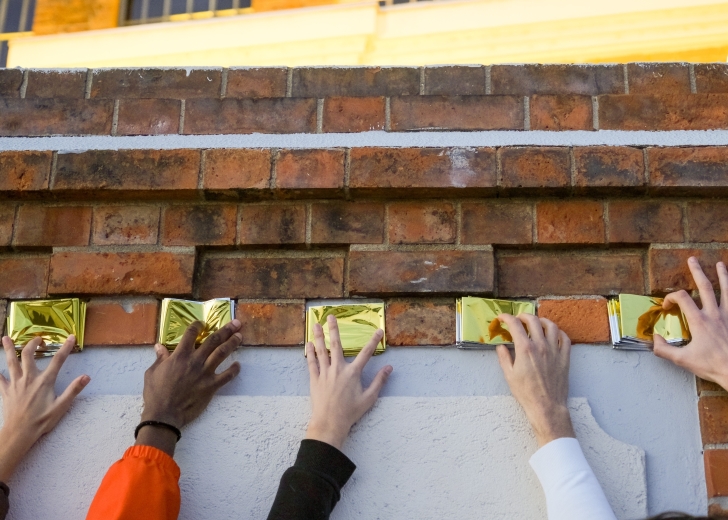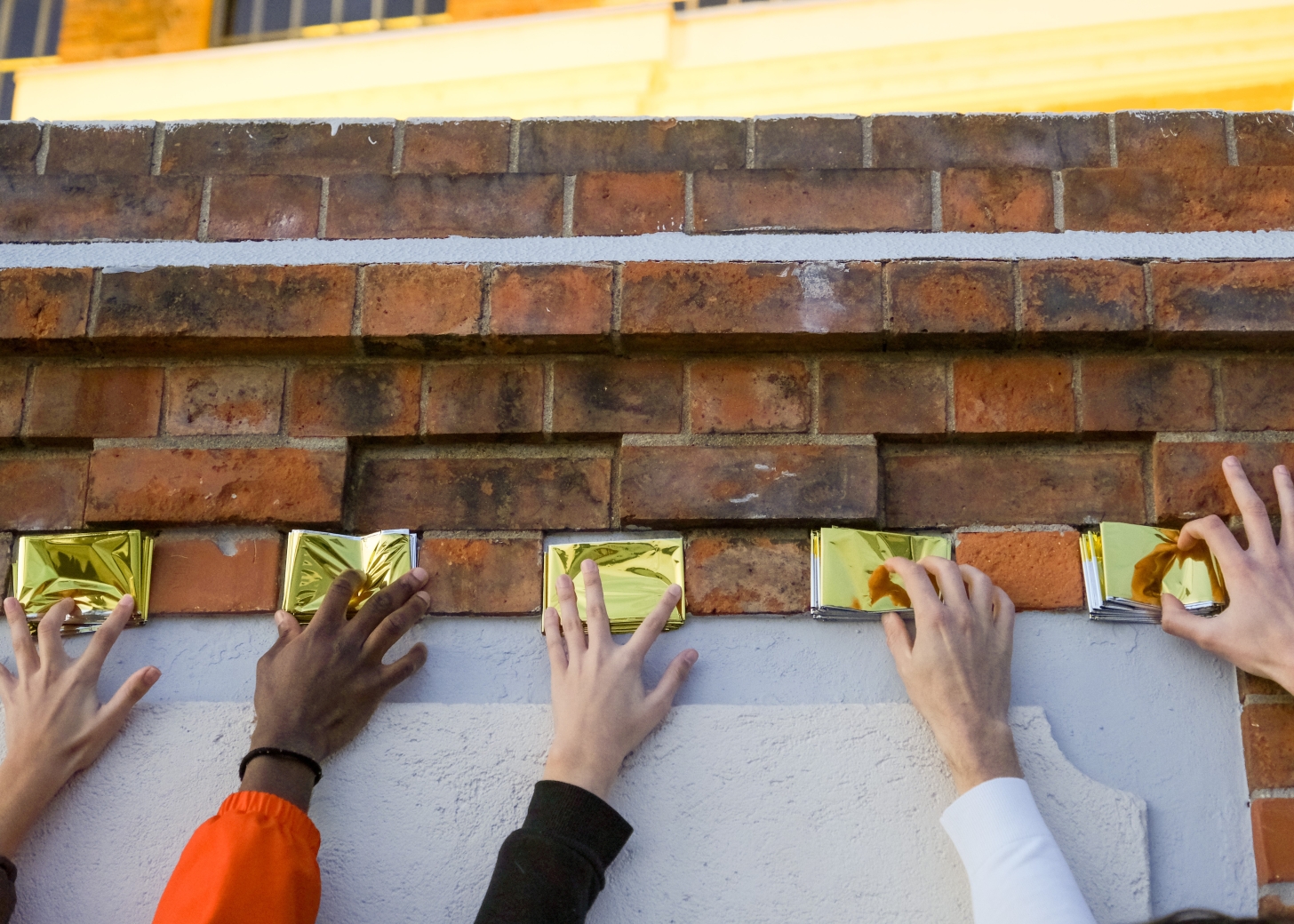Youth Collective 2023–24
Ecology of Feeling
In the second edition of the Youth Collective, an ongoing participatory programme, we invite you to debate with us the ecology of feeling. Based on notions of geographical, cultural, and affective territory, we will build a practical working group in close dialogue with the participants, the artists, the museum, and the city. Using different languages and materials, we will creatively produce collective maps of dialogue. What bodies and identities shape the territory? What are the places of feeling or what sensitivities do places bring us? These questions will serve as a basis for joint reflection between art, social policy, and activist actions on each of these territories. With you, we will take the museum out of doors. This programme is also built by your choices and your voice.
From the experience of the MAAT Youth Collective programme, implemented at the museum in partnership with the ICS-ULisboa Research Centre in 2021–2022, based on the research Youth in Museums – Educational provision and professional training for youth in contemporary art museums, by Carolina Silva.
OBJECTIVES
– To engage in dialogue with the museum's different teams in order to create common thinking dynamics.
– To expand the network of contacts of both young people and professionals in the cultural sector.
– To reflect on how to be and exercise an active voice in the museum and public space.
– Create moments of reflection with theoretical and practical proposals from artists.
– Actively participate in the development of a cultural programme.
– Jointly define ways of connecting the body, the city, and the museum.
– Play with the interdisciplinary relationships that the museum promotes.
– Broaden their knowledge of contemporary art and culture.
MAAT Youth Collective – Ecology of Feeling is the name for this second phase, where we propose to see the project extending out of doors, combining notions of cultural, geographical, and affective territories and how, through art, architecture, and technology (the museum's three disciplinary pillars), affective memories are established, which will be discussed in the light of a political and social action on how we can think together about an ecology of feeling.
The programme aims to promote a narrowing of the boundaries between the territories of the museum and the city. Understanding the museum as a cultural entity that also acts “out of doors”, in the public space, directly with communities, in an action where discourses and artistic methodologies are the foundation for promoting readings of the public space, for seeking to bring new audiences closer to the museum, and the opportunity to also create moments of connection with other local or non-local entities that make sense to young people for the project under development.
RELEVANCE OF THE YOUTH COLLECTIVE
This programme, which began in 2021, aims to test and develop a new type of continuous programme for young people (17-24) within the maat, as well as creating a space for participatory dialogue and active listening that involves young people in the programme aimed at them within the museum, in addition to testing and developing collaborative strategies between young people, and between young people and professionals in the arts.
Art, architecture, ecology, design, technology, science, all these areas and many others may intersect in this collective. An ongoing programme for young people that aims to be an experimental and interdisciplinary space for collaborative creation. The programme is structured in one-year seasons, where projects are developed with and for young people, together thinking about contemporary issues that concern us. This programme also aims to be an opportunity for the young participants to meet and work with artists, curators, scientists, and other professionals linked to the museum's programme.
CONTENTS AND DISCUSSIONS
– What can be in the community space beyond the physical space?
– Is it a comfortable and accessible space for everyone?
– What layers exist in the public space that need to be analysed?
– How do we relate to the city, to our street, and how can art and technology help us in this research/interpretation?
– What discourses are embedded in and permeate our imagery at the intersection of art, architecture, and technology?
– How should we intervene?
– How can we dilute prejudices and generational mismatches?
– Which bodies? Who can/should claim the space?
2023/2024 STRUCTURE AND SCHEDULE
The sessions will be held fortnightly, on Wednesdays at 17:30, at maat and/or spaces in the city.
Sessions of conversation, debate, and practical work involving various visual arts techniques.
Moments of reflection and work will be created with guest artists, who will be selected together with the group.
Before the programme opens in September, a listening lab-workshop will be held to capture and “listen” to young people, in order to lay the foundations for the strategies and planning of the programme to be implemented from October onwards.
The sessions will have three guiding axes: body, territory, and affection, which will be divided into 5 sessions for each theme + 2 sessions for drawing up a participatory project*.
BODY – 4 sessions
23/10/2023
06/11/2023
20/11/2023
04/12/2023
TERRITORY – 4 sessions
08/01/2024
22/01/2024
05/02/2024
19/02/2024
AFFECTION – 6 sessions
11/03/2024
25/03/2024
08/04/2024
22/04/2024
06/05/2024
20/05/2024
PARTICIPATORY PROJECT *
27/05/2024
03/06/2024
15/06/2024 (Saturday)
*To be defined with the participants
With: Fabrícia Valente, Maribel Sobreira

